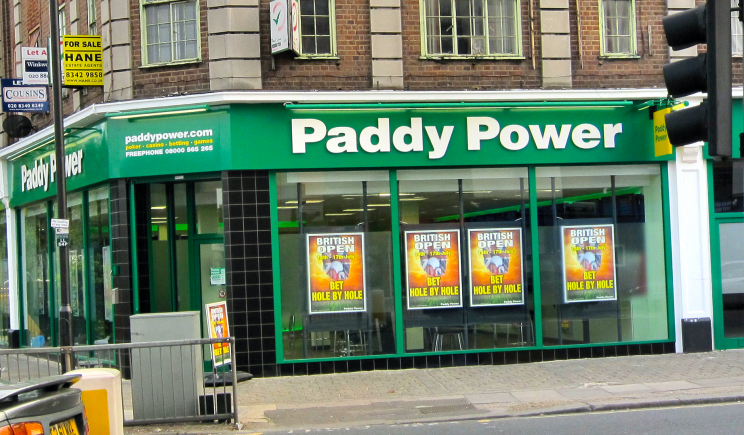Ireland's biggest betting company buys a DraftKings competitor
As the daily fantasy sports industry holds its collective breath to see if DraftKings and FanDuel, the two largest players, complete their planned merger, there’s interesting movement below the top.
Draft, a three-year-old daily fantasy app that has raised $5.6 million in venture funding, has sold itself to Irish betting powerhouse Paddy Power Betfair for $19 million in cash.
Paddy Power Betfair (PPB), which formed from the mega-merger of Paddy Power and Betfair last year, is the largest betting shop in Ireland and the largest online betting company in the UK (it is not the largest brick-and-mortar player in the UK by revenue). It has a $10 billion market cap. Draft has fewer than 1 million users and is not yet profitable.
PPB says an additional $29 million “cash consideration” will potentially “become payable” to Draft over the next four years depending on the performance of the business.
This deal may look surprising at first—an Irish bookmaking giant buys a small American fantasy sports app that loses money—until you consider what Paddy Power Betfair is getting: an instant entryway into a $3.3 billion industry (in total entry fees last year) that many believe will grow much bigger, despite a very bad year of legal setbacks in the US.
“Draft has a differentiated product and we believe the business, with the support of our marketing and technology expertise, can take share in the fast‐growing daily fantasy sports market,” said PPB CEO Breon Corcoran. This is PPB’s first US fantasy sports acquisition.
And this deal has implications amid the larger momentum toward legalizing sports betting in America. Overseas, where sports gambling is legal and ubiquitous, bookmakers are dipping a toe into fantasy sports to diversify their holdings and get a foot in the door of an exploding industry. (And fantasy sports companies are obtaining gaming licenses so they can operate freely in Europe.)
As Eilers & Krejcik Gaming writes in a research note about the deal, PPB’s play for Draft, “was not done based on any traditional valuation metrics or near-term financial upside” and is instead partially “a way to position itself in the US for the potential legalization of sports betting (i.e. acquiring DFS assets will allow it to build up a U.S. customer database).”
Scooping up Draft also lets PPB take on a combined DraftKings-FanDuel entity—and maybe overcome it, predicts Eilers & Krejcik: “The financial firepower behind Paddy Power Betfair is far superior to a combined DraftKings/FanDuel.”

The founder of Draft, Jeremy Levine, sold his previous fantasy sports company, StarStreet, to DraftKings in 2014. Last year, he brought on his friend and investing partner Jordan Fliegel to be co-CEO of Draft.
Fliegel, who played pro basketball in Israel before becoming an entrepreneur, is a savvy marketer who has consistently been able to raise capital for interesting but unproven startups. His own company CoachUp, a listing site for hiring private coaches, has raised $15 million and signed NBA star Steph Curry as an equity investor and brand ambassador. Fliegel is also the chairman of Athletes of Valor, a startup that seeks to pair young military veterans with college coaches for recruitment.
Levine and Fliegel will remain with Draft and build the business; they aren’t just selling out, they say. “Jordan and I aren’t going anywhere,” says Levine. “We are going to continue to run Draft together and operate the business independently, but with the added value of tremendous financial support and resources from PPB that will help us take market share by reaching a larger audience, not just of DFS players but all fantasy sports players and more casual sports fans, too.”
Indeed, that was Draft’s target demographic initially: focusing on DFS newbies and emphasizing the fun experience of drafting, rather than the roster-watching and number-crunching that comes next. When Draft first launched, it only allowed head-to-head, two-player drafts, but it soon added public drafts that users can do with friends or strangers, and it soon added more considerable monetary prizes.
Its standard public contest now is a six-person, $10 entry fee draft that pays out $36 to first place and $18 to second. (Draft takes $1 per user.) Draft boasts that players are nearly three times more likely to win money on its app than on DraftKings or FanDuel.
With PPB behind it, Draft is likely to expand into new areas beyond DFS—something DraftKings and FanDuel have hinted they are eyeing as well. “We are going to continue to improve on what is already the best mobile app in the fantasy space,” says Levine. “We have lots of new product features in the works that we are really excited about. This deal is just the start of Draft.”
—
Daniel Roberts is the sports business writer at Yahoo Finance. Follow him on Twitter at @readDanwrite. Sportsbook is our recurring sports business video series.
Read more:
The daily fantasy sports market has a demographic problem
Why the island of Malta is so important for DraftKings
IT’S OFFICIAL: DraftKings and FanDuel are merging
The daily fantasy sports industry has changed drastically in just 1 year
Here’s where every state stands on daily fantasy sports legality
